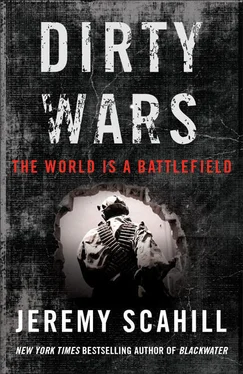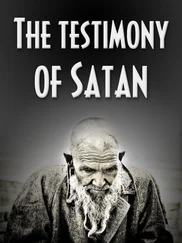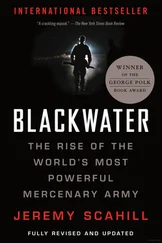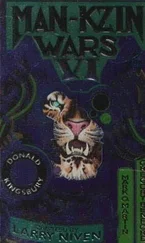Driving around suburban Virginia during Ramadan in late 2001, Awlaki spoke to a camera held by a journalist from the Washington Post. “Since the war started there have been a lot of casualties among civilians. A lot. And unfortunately that hasn’t been reported, or hasn’t been reported in a fair proportion in the media, so there’s a lot of concern that the common people in Afghanistan are paying the price for this. They’re pawns in this game of politics,” he said.
After September 11th, the feelings of American Muslims were similar to the feeling of everybody else in America, feelings of sympathy for the families of the victims, and a sense that whoever did this needs to be brought to justice… that was the prevailing feeling amongst all American Muslims, in fact Muslims around the world. The war changed that a bit, because we have the memories of Iraq fresh in our minds. We were told in 1990 that this was going to be a war against Saddam Hussein. Well, after ten years he’s still in power and the ones who are suffering are the Iraqi people. A million in Iraq died. So those memories are coming back to us now. They say it’s to get the terrorists, but then here we go, casualties from the civilians.
The interviewer asked Awlaki what he thought of bin Laden and the Taliban. “They represent a very radical understanding, an extreme view, and a part of what feeds into [those] radical views are the conditions that exist in the Muslim world,” he said. “It’s definitely a fringe group. There have been teaching[s] that were twisted. It’s a method of justifying views by using religious texts, and that could exist in any religion.” Awlaki appears, in the video, to be struggling sincerely with how to respond to 9/11. He is also seen as a loving father, wiping his younger son’s nose. At another point, he holds his trotting toddler’s hand as they walk into the mosque. For a brief moment, Awlaki even sings part of the theme song from the children’s show Barney : “I love you, you love me.” It is difficult to watch the hours of footage and conclude that he was simply a good actor.
As incidents of anti-Muslim violence and bigotry spread, Awlaki watched as Muslim and Arab communities in the United States were targeted by the federal government. The people who came to his sermons told him of harassment they endured because of their race or their faith. People were rounded up, mosques were infiltrated, Muslim businesses were targeted by vigilantes and federal agents. Like many American Muslims, Awlaki believed that his people were being singled out, profiled because of their religion or race. “There is an element of feeling among the Muslims that they are targeted, or at least they are the ones who are paying the highest price for what’s going on,” Awlaki told National Public Radio in October 2001. “There has been a rise in negative reporting on Islam in the media since the events happened. There have been 1,100 Muslims detained in the US. There’s a bombing going on over a Muslim country, Afghanistan. So there are some reasons that make the Muslims feel that, well, it is true that the statement was made that this is not a war against Islam, but for all practical reasons, it is the Muslims who are being hurt.” When two members of his former San Diego mosque were detained on the basis of allegedly “strong connections” to the hijackers who had worshipped there, Awlaki rebuked the FBI. “There was no need to round them up in a crude fashion,” he said. He and his colleagues had preached patience and cooperation with the authorities, Awlaki said, but argued that “our people won’t listen to us when they see this is how the FBI is treating them. It strengthens our belief that we are a community under siege…whose civil rights are being violated.” “It is not right,” he went on, claiming that the two men had tried to voluntarily cooperate with authorities before being unfairly detained. “It gives the impression they have involvement in this. It just destroys their reputation. I am convinced they are innocent.”
As the weeks went on after 9/11, Awlaki described in scores of media interviews the struggle that he and other Muslim leaders were facing in their communities, sparked by the perception that the United States was waging a war against Muslims and Islam. “It is the radical voices that are taking over, the ones who are willing to enter into an armed confrontation with their governments. So, basically, what we have now is that all of the moderate voices are silenced in the Muslim world,” he said in one interview. In another, Awlaki said, “With American Muslims, there’s this feeling of being torn between our nation and our solidarity with Muslims around the world.” Awlaki began warning the United States that if it launched what Muslims perceived as a war against their religion, it would bring blowback. “My worry is that because of this conflict, the views of Osama bin Laden will become appealing to some of the population of the Muslim world,” he said. “That’s a very frightening thing, so the US needs to be very careful and not have itself perceived as an enemy of Islam.”
IN ONE OF THE ODDER TWISTS in Awlaki’s post-9/11 story, he was invited by officials at the US Department of Defense (DoD) to address a Pentagon luncheon on February 5, 2002. In a declassified e-mail, one of the organizers of the event, a Pentagon employee, wrote: “I had the privilege of hearing one of Mr. Awlaki’s presentations in November and was impressed both by the extent of his knowledge and by how he communicated that information and handled a hostile element in the audience. I particularly liked how he addressed how the average Middle Eastern person perceives the United States and his views on the international media.” The e-mail concluded that the event needed to be booked soon because Awlaki “will be leaving for an extensive period of time,” adding, “I think you’ll enjoy it if you come. [Awlaki] is very informative and this is certainly a hot topic that we all would like to learn a little more about.” According to declassified Pentagon documents, “At that period in time, the secretary of the Army (redacted) was eager to have a presentation from a moderate Muslim,” adding that Awlaki “was considered to be an ‘up and coming’ member of the Islamic community.” After being vetted for security reasons, Awlaki “was invited to and attended a luncheon at the Pentagon in the secretary of the Army’s Office of Government Counsel.” (It is unlikely Awlaki dined on the “East Side West Side” sandwich offered at the event, which included beef, turkey and bacon on marbled rye.)
The Pentagon appearance may have just been a freak event that occurred thanks to poor vetting and Awlaki’s public reputation at the time, shaped by his scores of media appearances, but it would also fuel speculation that Awlaki was cooperating with the US government in its 9/11 investigations. When I asked Nasser Awlaki, Anwar’s father, about the Pentagon luncheon, he lit up. “Yes! You know, you cannot believe it,” he told me. “At one time, he told me he will join the US Army in order to be Muslim chaplain.” In one conversation he had with his son during this time, Nasser said Anwar “told me he was mad not to be invited to the White House. Like other Muslim dignitaries during Ramadan, when Bush started this event, asking people to come to Ramadan. He thought, how come they didn’t ask him, because he was the imam of a big religious center in America.” Awlaki may not have made it into the White House, but in early 2002, he was invited to lead a prayer service in the US Capitol. His sermon there was featured in the 2002 PBS documentary Muhammad: Legacy of a Prophet .
In March 2002, US federal agents conducted a series of sweeping raids against more than a dozen Muslim nonprofit organizations, businesses and private homes. The raids were conducted under the banner of an interagency task force and were part of a broad investigation into terror finances, code-named Operation Green Quest. Among the raided organizations were respected Islamic think tanks, such as the International Institute of Islamic Thought, as well as the Graduate School of Islamic and Social Sciences at Cordoba University in Virginia. The homes of various leaders and staffers of the organizations were also searched and their property seized. The raids were allegedly conducted as part of a targeted operation against terrorism financing. The agents seized computer hard drives, confidential files and books. The raids filled five hundred boxes with files seized in the actions. No charges were ever filed against any leaders of these institutions or the organizations themselves in connection with the raids. Mainstream Muslim organizations and civil liberties groups condemned the raids as a witch hunt. Awlaki delivered a stinging sermon saying Operation Green Quest “was an attack on every one of us” in “the Muslim community,” warning, “If today this happened to these organizations, tomorrow you’re going to be next.” In another sermon, Awlaki declared, “Maybe the next day the Congress will pass a bill about Islam that it is illegal in America. Don’t think that this is a strange thing to happen; anything is probable in the world of today because there are no rights unless there’s a struggle for those rights.”
Читать дальше












